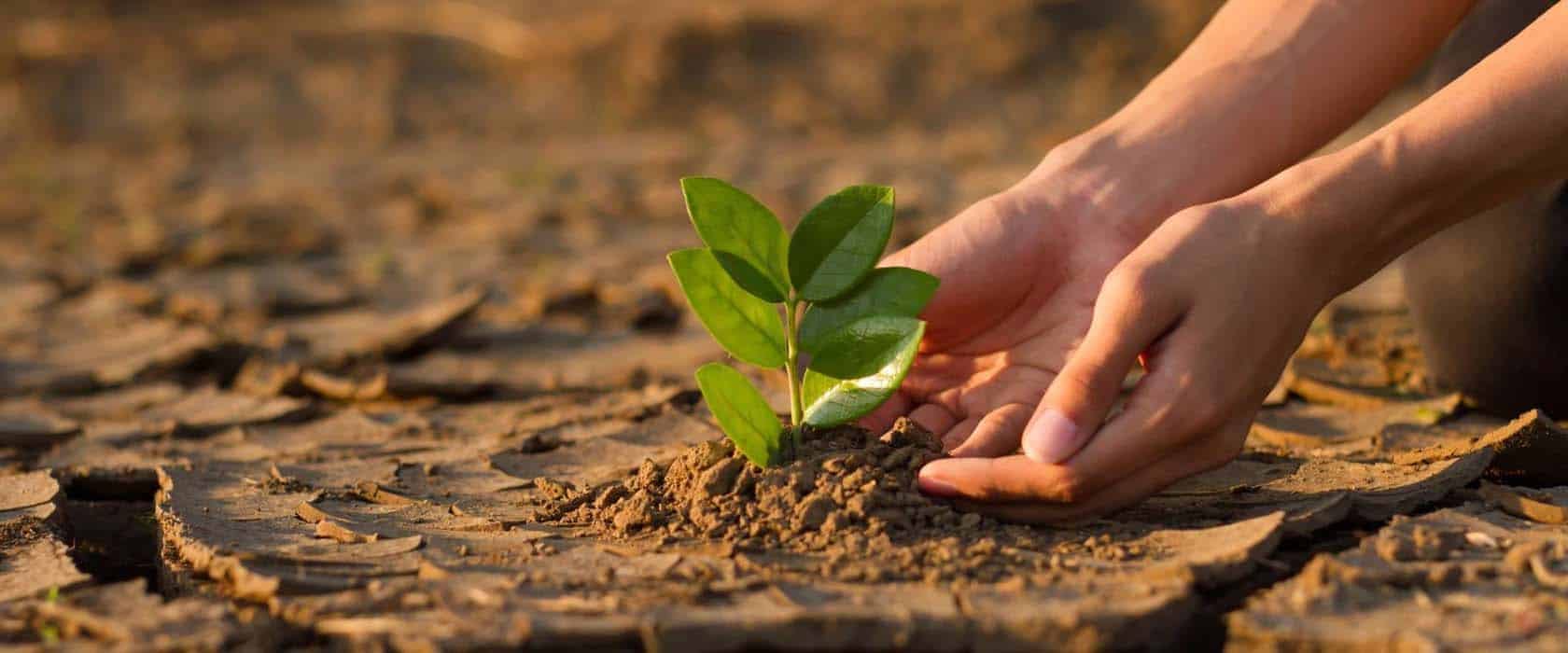What Role Do Business Leaders Play in Fighting Climate Change?
We need impactful changes like never before in the global fight against climate change. That starts with individuals developing into responsible leaders who go into businesses and plant seeds for sustainable business models. That is why business leaders have a crucial role to play in the fight against climate change.
Patricia Goncalves stands out as an example of the profound impact that leaders bridging the gap between business and sustainability can have on addressing our planet’s most pressing climate challenges.
Today, Patricia serves as a dedicated sustainability and climate consultant. However, her journey to this point has been marked by a series of twists and turns, each contributing to her evolution as a changemaker in the sustainability space.
Before embarking on her MBA journey, Patricia was deeply involved in consultancy work, focusing on public services and sustainability. Her experience ranged from working with NGOs to healthcare to transportation and engaging in innovative projects such as building greener cities.
Her story is an inspiring example of how an MBA from the University of Oxford’s Saïd Business School can equip individuals to make a difference in the world.
Patricia’s Journey From Consultancy to Fighting Climate Change at COP28
Patricia’s drive to create change at a larger scale led her to transition to for-profit work, recognizing the role businesses play in advancing sustainability and society.
“I think business and for-profit are extremely important if we want to advance sustainability in society. I wanted to see [what] it was like to work for business,” she says. (02:24)
Her business-focused journey opened unique opportunities, such as attending the UN Conference of the Parties (COP). She attended COP27 in Sharm el-Sheikh, Egypt, as part of an NGO team for her previous employer. She had the chance to participate a second time in COP28, where she was part of the Oxford delegation and played a vital role in shaping discussions around climate policy and sustainable initiatives.
“I was there to get updated on the most pressing issues of climate change and bring that back to Oxford, and specifically the business school, and to my own life and professional life,” Patricia explains. (09:21)
Her background in consultancy and sustainability gave her a unique perspective, allowing her to contribute meaningfully to the global dialogue on climate action.
“I think COP is my annual dose of Red Bull, as I like to describe it. It’s very good to be back to interacting with activists, NGOs, policymakers, but also business[es] and see this ecosystem of things happening,” Patricia highlights, admitting her passion for being a part of such impactful change-making institutions. (05:47)
What is COP28?
COP28, an abbreviation for the 28th meeting of the Conference of the Parties (COP) to the UNFCCC, took place in 2023 in Dubai.
Patricia explains that COP is the most important annual sustainability and climate action event. “It’s the center. It’s where everything happens in terms of policy, but not just policy. So it was very good to be close to the center of the decision-making process.” (06:11)
Business leaders, climate scientists, experts, and stakeholders participate in COP. Young, educated leaders like Patricia add valuable new voices to the mix and interdisciplinary insights into the intersection between business and sustainability. These insights are crucial when addressing the most pressing issues in today’s world.
The Power of an Oxford MBA in Tackling Climate Change
Oxford’s Focus on Impact
When asked about her motivation to pursue the Oxford MBA at Oxford Saïd, Patricia highlighted the school’s strong focus on impact and its multidisciplinary approach.
Oxford’s rich collegiate ecosystem ensures a multidisciplinary setting inside and outside the classroom. Students at Oxford have the opportunity to expand their networks, be at the heart of an intellectually stimulating and interdisciplinary environment, and make valuable lifelong connections, whether friendships or business relationships. Students hone crucial skills such as teamwork, leadership, conflict management, and strategy building that will help them excel as leaders in any field.
The Oxford ecosystem, which comprises diverse perspectives and areas of expertise, is uniquely placed to address today’s climate-related challenges. In fact, the 2024-2025 cohort of the Oxford MBA is comprised of 97% international students from 59 nationalities. With an average work experience of six years, students in the Oxford MBA learn from their professors and experienced and diverse peers.
“I find it quite interesting to not only have the business angle in my life but to have this interaction of ecosystems and people that you can talk to about various issues. And I think that multidisciplinarity is one of the things that, hopefully, will solve society’s most pressing issues.” (04:32)
Patricia also highlights the program’s emphasis on enabling collaboration between businesses, governments, and NGOs in implementing sustainable policies and solutions. (10:15)
After completing the core courses, students can tailor their learning journey through internships, electives, and a Strategic Consulting Project. Through hands-on initiatives like the consulting project, students gain invaluable practical experience with an established company or organization. This allows students to implement their learning in a way that has a real-world impact.
“To have that opportunity to interact with companies and to help them build their business model in a system-wide approach is just incredible,” Patricia says. (11:03)
The university provides the ideal setting for future climate leaders to gain the knowledge, connections, and skills they need to make a successful impact in their careers and the world.
Saïd Business School’s Commitment to Sustainability
Saïd Business School believes business is fundamental in enabling a sustainable economic future. With a complex climate crisis on our hands, the way forward involves addressing systemic issues through a multidisciplinary lens that addresses challenges at a systemic level.
Reflecting on this role of business in fighting climate change, Patricia stresses the need for collaboration and innovation.
“Business is an important fabric of our society, not only to help with funding…but also on the implementation side of things. It’s all good to talk about solar. It’s all good to talk about renewables. It’s all good to talk about carbon capture. But how do you actually implement those solutions?” Patricia asks. (11:50)
Institutions must integrate various components essential to shaping a sustainable future: communities, technology, business, and our environment.
“I think the coalition-building between businesses, academia, NGOs, and the public sector is needed,” Patricia stresses. (12:33)
Embedded within the heart of the world-leading, multidisciplinary University of Oxford, Saïd Business School leverages its research, teaching, and access to the world’s leading experts to drive meaningful change beyond the classroom.
Patricia’s Future Endeavours and Fight Against Climate Change
As Patricia looks into her post-MBA journey, she envisions herself playing a key role in driving sustainability agendas within corporations or international institutions.
Her career projection exemplifies Saïd Business School’s ethos, which ultimately lies in developing future leaders who catalyze change. Armed with the knowledge and skills gained from her Oxford MBA, she is ready to make a meaningful impact on the world.
Want to learn more about the Oxford MBA experience? Contact one of their student ambassadors who can provide further first-hand insights.







